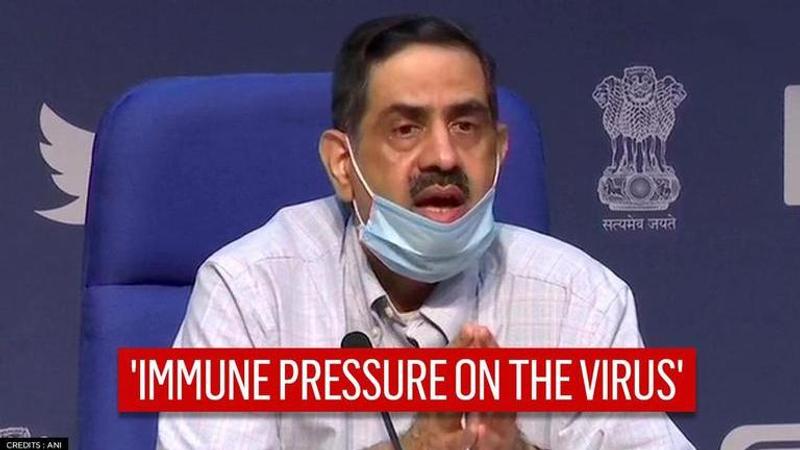Published 21:52 IST, December 29th 2020
'Mutations of COVID virus due to non-judicious use of therapies', says ICMR Chief
Dr. Bhargava remarked that while genetic mutations were fairly common in respiratory viruses, a higher transmissibility rate could be a point of concern.

As countries begin to report cases of the new strain of Coronavirus, ICMR Director-General Dr. Balram Bhargava has stated that the virus mutations are a result of 'non-judicious use of therapies' that are in turn putting 'immune pressure on the virus' causing it to mutate.
"Those therapies which are being touted as 'anti-viral' or 'anti-COVID therapies' and they do not have benefits established in a scientific research paper, those therapies should not be used as they will put tremendous immune pressure on the virus and it will tend to mutate more, Dr Bhargava told news agency ANI.
Dr. Bhargava remarked that while genetic mutations were fairly common in respiratory viruses, a higher transmissibility rate could be a point of concern. He also added that immune pressure on the virus could be related to the environment apart from the treatment and other modalities. "Genetic mutations occur in the respiratory viruses and these minor drifts may occur from time to time but once several drifts occur it has higher transmissibility rate as it happened in the United Kingdom. So that is a point of concern although we are testing in India for virus variants regularly, " he said.
"So it is important for our scientific community also that we do not put too much immune pressure on the virus and we have to maintain the judicious use of therapies which are going to benefit. If the benefit is not established, we should not use those therapies. Otherwise, they will put tremendous immune pressure on the virus and it will tend to mutate more," he added.
The new strain of COVID-19 which was discovered in the United Kingdom is said to be more transmissible than other SARS-CoV-2 variants, as per experts. Additionally, while it was detected in December, it is believed to have been present since September. Since the discovery of the new strain in the UK, several other variants have been detected in other parts of the world, including South Africa and Nigeria. India has detected six cases of the mutated strain to date.
(With Agency Inputs)
Updated 21:52 IST, December 29th 2020




